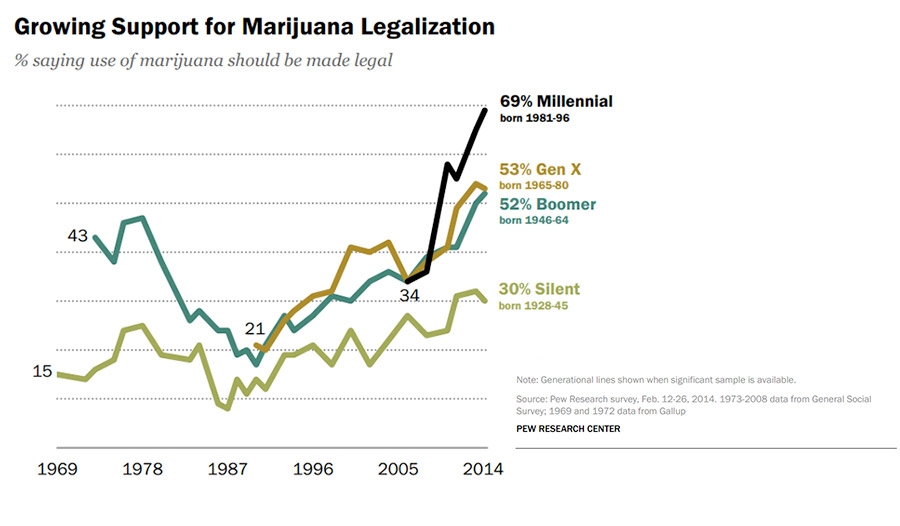MARK COLVIN: There’s been another high-level call to consider legalising cannabis for medicinal use.
An article published in the Medical Journal of Australia today argues that medically supervised use of cannabis provides relief for some chronic nerve related conditions with fewer side effects than existing medications.
In May this year a New South Wales parliamentary committee recommended legalising medicinal cannabis for selected conditions.
But the New South Wales government has since dismissed the unanimous recommendations of the committee, which had members from five political parties.
Emeritus Professor of Anaesthesia, Laurence Mather, co-wrote today’s article.
He spoke to Nance Haxton.
LAURENCE MATHER: There’s a lot of evidence to show it’s useful in some conditions. Certainly, it’s not really a curative use. It’s a palliative use to allay the symptoms of a number of conditions, mostly to do with nerve damage of some sort or another. And the nerve damage includes things like the spasticity of multiple sclerosis, chronic pains of certain types that are known as neuropathic pains. It’s used for treating nausea and vomiting in people who have intractable nausea and vomiting from chemotherapy.
There’s a whole range of uses for which cannabis is known, I think, from the evidence presently available, to be effective.
NANCE HAXTON: Are there are any alternative medicines that provide the same effect for those conditions?
LAURENCE MATHER: There are in some cases. Chronic pain management is particularly covered by opioid drugs, morphine type drugs. But the cannabis works in many cases where conventional medications don’t work, and/or the conventional medications have excessive side effects.
NANCE HAXTON: And how would cannabis be prescribed medicinally? How would it be used medicinally?
LAURENCE MATHER: It can be used by vapourising the active ingredients out of the cannabis preparation or it can be used by making a tea-type preparation by using hot water to extract the active ingredients, or by extracting them into oils and making a butter-type preparation, or by baking them in brownies, etc. There’s a variety of ways of taking it like that. That’s using the crude cannabis plant.
And there’s a way of using a prepared product, that’s known as Nabiximols, which is made by a company in the United Kingdom. They take a cannabis extract, they make their own extracts out of it with appropriate technology, and they purify these extracts to an extent where they are known in their active ingredient content. And this is sprayed under the tongue, and the cannabis becomes absorbed from the mucous membranes of the mouth, and some of it’s swallowed. And a variety of methods of that kind could be used.
NANCE HAXTON: Are there any other countries that have looked at this issue and made marijuana available for medicinal use?
LAURENCE MATHER: Yes, quite a few. There are some twenty or so countries at the moment that have made it available for medicinal use, and the list is growing monthly. And there are various states of the United States that are in the process of doing this. I think it’s up to about twenty states at the moment in the US, plus the District of Columbia, that have made what they call medical marijuana laws, and it enables the medical use of marijuana.
NANCE HAXTON: Can it be argued, though, that by having some cannabis available for legal, medicinal use, that it sends the wrong message to the rest of the community that using marijuana is OK?
LAURENCE MATHER: Well that’s an interesting ideological argument. It’s certainly not borne out by the evidence. There’s specific evidence available from the United States, where they do have medical cannabis laws. The evidence is very clear. In those states that have those laws, the number of people busted for having cannabis illegally is certainly not greater than in other states.
The medical use of it does not flow through to illegal use of it.
NANCE HAXTON: Is more research needed before Australia really looks at whether it can make medicinal use of marijuana legal?
LAURENCE MATHER: I don’t believe so. I believe there’s enough evidence out there at the moment to proceed. A lot of analogies are drawn from cannabis when it’s used recreationally, and the recreational cannabis really should have nothing to do with the medicinal use of cannabis in the way people conceive it; certainly when the regulatory bodies and the Government consider it. They should consider the two separately.
MARK COLVIN: Dr Laurence Mather speaking to Nance Haxton.
(ABC Radio 9 December 2013)





